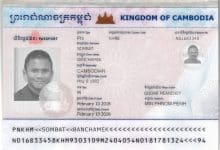Anti-Fake News Centre investigated 16,843 of 800 million posts

Fake news has become one of the most continuously pervasive problems plaguing Thailand and the rest of the world. From its creation in November of 2019 up until July 20 of this year, Thailand’s Anti-Fake News Centre has sifted through 800 million messages and opened 16,843 cases to investigate and verify information, misinformation, and disinformation.
Of the nearly 17,000 fact verification investigations, a full 95% of them involved either healthcare and medical misinformation, or governmental and political stories. Nearly half – 49% – of all fake news items investigated were related to healthcare in some form, including the Covid-19 pandemic. Another 46% were related to state policies, government, or laws and regulations.
The remaining 5% of disinformation investigations were made up of 3% false claims about the economy, and 2% misinformation about disasters.
The Ministry of Digital Economy and Society has overseen the AFNC and its gargantuan amount of data analysed and says that fake news complaints and reports have been on the decline recently. This disinformation decrease can be attributed to raising public awareness about false news and the continued coordination of 358 state agencies working alongside the media to verify information that’s published or shared, according to Minister of Digital Economy and Society Chaiwut Thanakamanusorn.
“The AFNC has been well supported by various agencies, especially the Ministry of Public Health, the Food and Drug Administration, and the Royal Thai Police, which has also established a unit to fight against disinformation, called the Anti-Fake News and Security Center.”
He says that, despite the increase in this information awareness in the public, the Thai government plans to remain vigilant in its fight against false news through constant monitoring and response to disinformation and expanding cooperation with other agencies. The minister confirmed a federal budget of about 80 million baht per year to fight bad information with good.
For the first two years of the program, fake news was dominated by Covid-19 misinformation as the virus spread and scientists rushed to study and understand its cause, prevention, and treatment. Even now this year, pandemic recovery remains a main category of disinformation, joined by state policies and the Thai economy.
The AFNC battles the dissemination of false information with a four-pronged approach:
- Monitor online channels to identify potentially fake news.
- Notify the Ministry of Digital Economy and Society flagged possible disinformation.
- Verify the validity or inaccuracy of the flagged content.
- Counter the misinformation with a published clarification.
Anyone who encounters false posts and wants to help prevent the spread of misinformation can report the content in six different ways:
- Online at www.antifakenewscenter.com
- Via Facebook on the official Anti-Fake News Centre account
- Via Twitter @AfncThailand
- Via the LINE App @antifakenewscenter
- Through the Fake News Notification Centre
- By calling the Public Information Service Center 1111 telephone hotline, extension 87
SOURCE: Bangkok Post
Latest Thailand News
Follow The Thaiger on Google News:


























